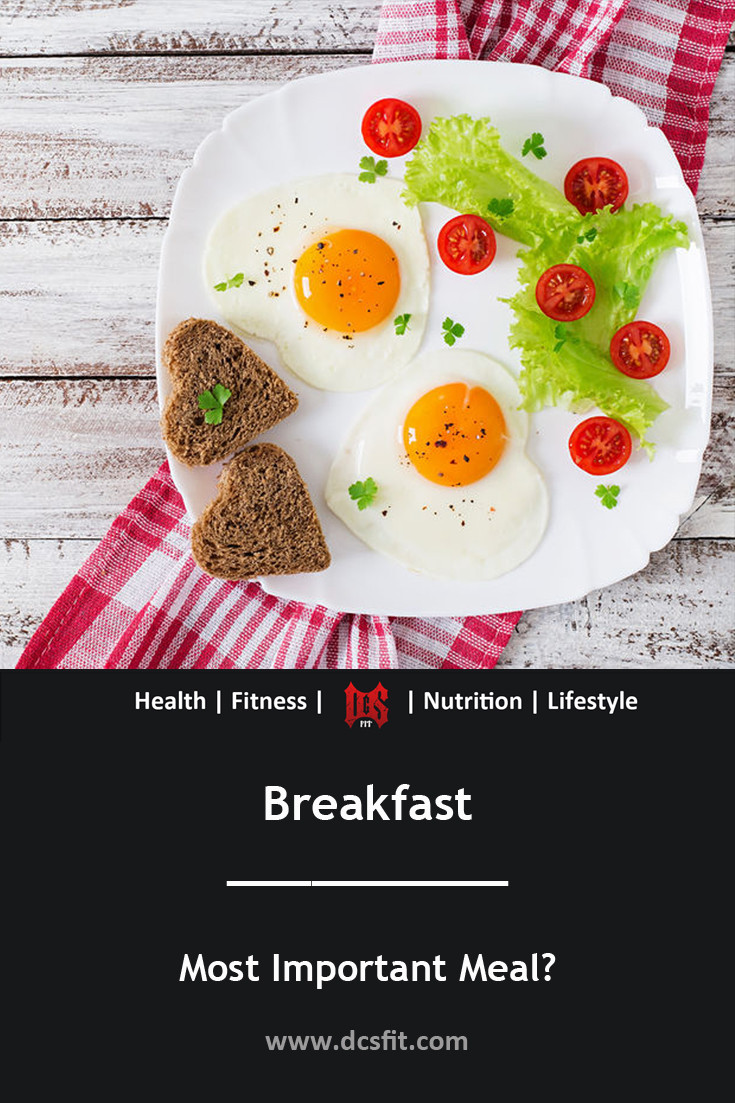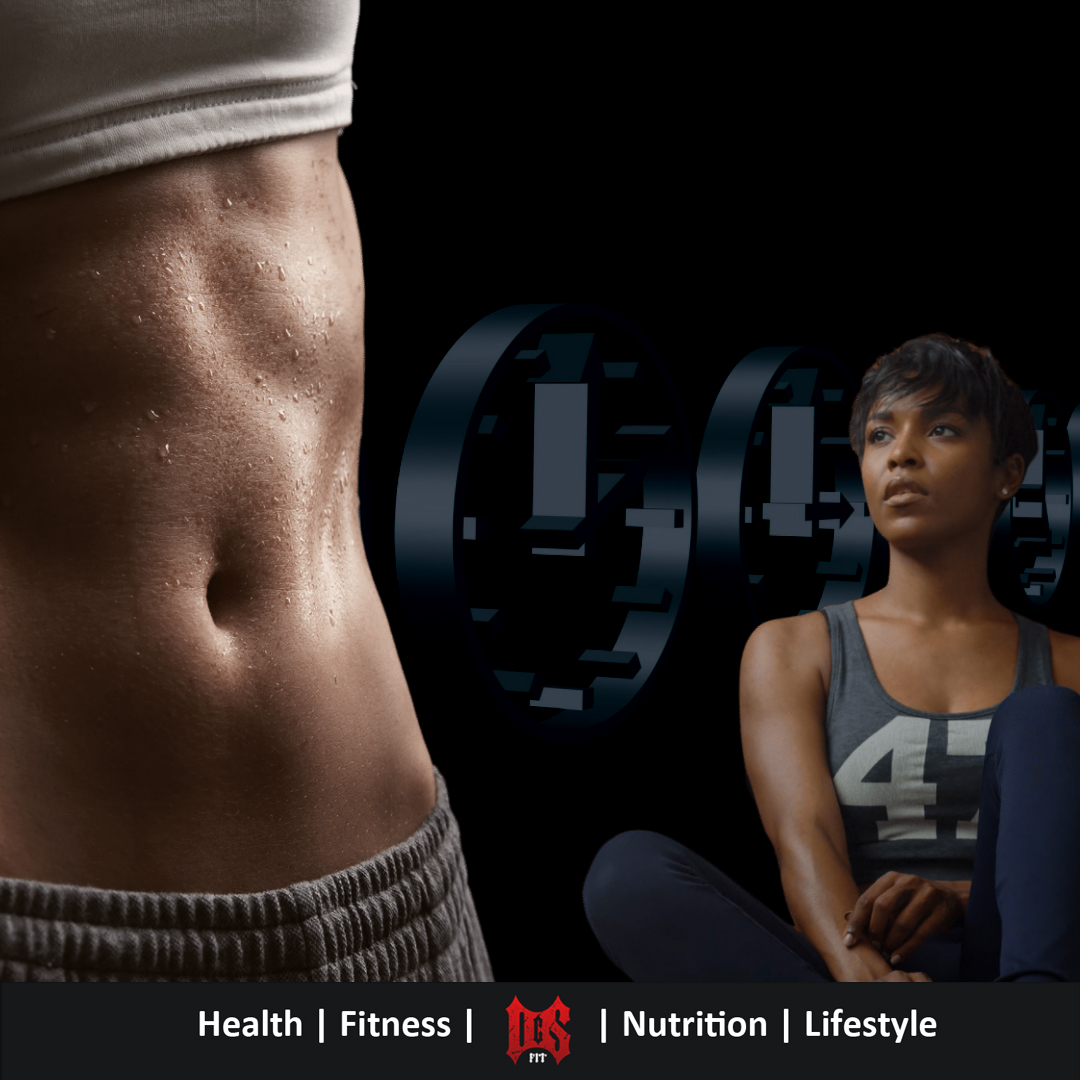BREAKFAST
MOST IMPORTANT MEAL OF THE DAY?
Breakfast is the most important meal of the day! At least that’s what my grandparents always told me.
But, how much truth is there in that statement?
The other myths in this series of articles generally show that the opposite is true to the commonly held view.
That’s not quite the case here.
However, the emphasis on the importance of breakfast is not all as it seems and the importance of ensuring a nutritious breakfast is more dependent on the individual and what you are focusing on as important at this point in your life.
Breakfast when trying to lose weight
Many experts will claim that, when weight or fat loss are the priority, breakfast is critical to ‘ramp up your metabolism’ and give you the energy to then burn more calories in the day ahead.
Many people trying to lose weight fast will take the knee jerk reaction that, restricting intake anywhere possible will make the biggest difference and that breakfast is just extra calories that they can do without to keep the severe deficit in place as they look to starve themselves thin.
Neither of these approaches are ideal.
The starvation method, no matter where you are eliminating the calories, is only going to adversely affect your health, mess up your internal functions and hormone production and lower your metabolism to the point of borderline hibernation.
Therefore, this is not a good reason to skip breakfast and in this instance, the nourishment of a quality breakfast would, by far, trump the negative effects of starving your system.
However, the idea of ramping up your metabolism is also flawed.
In fact, by ‘breaking your fast’ (hence the name) you are instantly affecting your insulin sensitivity and ultimately could negatively affect your fat burning ability.
How does having breakfast affect insulin and fat loss?
During the night, when your body is recovering and fasting, your hormones change drastically (the exact details of which I’ll leave for another time). Your system is working more on growth and repair. And, because you are not giving your body any external stresses or tasks to deal with, the whole system gets to re-set to some degree.
One part of this is insulin sensitivity.
Whenever you eat something, you get an insulin spike. The severity of that spike is dependent on a few different things.
If you can think of insulin as a fast delivery system or transporter. It is released when something needs flushed from your bloodstream quickly.
The most common reason for this is to remove sugar.
If your blood sugar is too high it is extremely dangerous. If it is not flushed properly, it could be fatal.
The release of insulin is used to transport the toxin (in this case sugar) to a safe storage point.
If your glycogen stores are empty, that is the easiest deposit point, so it will go there.
If, however, they are full, your body will aim to convert the sugar to fat and store in your fat cells.
So, one factor in how much insulin you produce at any given time is, how much toxicity is required to be removed.
Therefore, carbs high on the GI scale are often frowned upon when trying to lose weight. They cause the biggest spikes in insulin.
Overnight, you are not eating anything and therefore your insulin producing system gets a break (along with many other systems in your body). In the morning your body’s insulin sensitivity is improved. This means you need to release less insulin to do the same level of clean up.
Therefore, by delaying the intake of food, you can further improve your sensitivity levels and be even more efficient.
If you start your day with a high carb meal (ie cereal) you are cause a spike, which is going to decrease your sensitivity early in the day. Also, even if your next meal is not high in sugar or carbs, your body will remember how much insulin was required last time and just release that. So, you are setting yourself off to a bad start.
If you go for a high protein, high fat, breakfast, this is potentially a better approach. But, you will still have a release of insulin and stop the improvements in sensitivity.
Can skipping breakfast make you gain weight?
This all suggests that breakfast is not a good option, especially if you are trying to lose weight.
In fact, it would suggest that it is a catalyst to making you gain weight.
Things are never that simple!
The above is simply showing that it’s not as black and white as eating to ramp up your metabolism as there are negative connotations to weight up against the metabolic effect of digesting food (which would happen at any time of the day).
But that doesn’t necessarily mean it is a bad thing.
If you are used to eating breakfast and then stop, your body will be expecting an intake at that time. If it doesn’t get it, the physical reaction is one of panic. You’ll feel jittery and possibly cranky and it could cause you to binge when you finally do decide it is time to eat.
You will also, likely, feel lower in energy and so less inclined to do anything active.
If you generally workout in the morning, go for a run or are simply busy at work, your productivity level for these things may drop.
The result is a drop in caloric output.
Weight loss is, ultimately, all about energy balance.
If you consume more than you burn, you put on weight and vice versa.
So, by skipping breakfast, if you are not careful, for the rest of the day, you may be much more likely to panic eat and end up consuming more calories than usual. Add that to the fact that you may have burned off less earlier in the day and now you are adding weight where you intended to lose it.
Will breakfast make you fat?
From everything you’ve read here so far, you will likely be confused now.
On the one hand, if you eat breakfast you mess up your insulin sensitivity and could lead to your body not dealing with your food choices as well as the day goes on.
On the other, if you skip breakfast you could automatically encourage behaviors that put you in a calorie surplus, causing weight gain.
The fact is, breakfast alone doesn’t make you fat or cause you to lose weight.
What matters is the consistency of your actions and how they fit in to your daily routine.
If you can find a route that is consistent, and you don’t have to stress to force it to work, you will get much better results than if you try to shoehorn an ideal situation of someone else’s choosing into your day.
How do you discover which breakfast approach is the right one?
Like most things health and fitness related, there may be a bit of trial and error required.
But, there are a 7 things you should look to when making your choices of where to start:
- What kind of demands do you have on your day?Are you someone who wakes up in the morning and is rushing to try and fit in breakfast before you run out the door?
If it is adding to your stress levels, then a plan that allows you to skip this meal and get your nutrients in later in the day may be advisable.
- Can you be consistent in having breakfast every day?Your body likes consistency. If you know there are going to be some days where you are going to run off without your fast-breaking meal, then those are the days where you are going to cause the internal panic switch to trigger and most likely cause poor decisions later in the day.
If this is a regular habit, then by choosing a plan that does not include breakfast will make that the norm and therefore it will not be a shock to the system. The panic reactions will not hit and you can reap the benefits of an improved insulin sensitivity level later in the day.
- As the day progresses, do you have time to take in the necessary calories and nutrients?By skipping breakfast on a regular basis, you are more likely to consume less food in total.
So long as you can avoid any binging as a result, you simply have less time to consume food and so you will reduce your calorie intake naturally.
But, if that means you are now not consuming enough calories, vitamins and minerals, then your body is not being nurtured to the level it needs. It will not function correctly and start to shut down non-essential functions (and fat burning is not a priority in this situation).
If breakfast is the last time of the day where you are in full control of your timetable. Your lunch breaks often get cut short and dinner is something you only have time to snack at as you have more work to do, then using that time in the morning to get a stock of nutritious, vitamin and mineral rich foods would be advantageous. Therefore, breakfast suddenly becomes an important marker in your healthy eating plan.
Keep in mind also, cramming all your nutrients into one or two meals makes ensuring uptake of all vital vitamins and minerals much more complex. One method often utilized to overcome this is often multi-vitamins.
In either case, I’d strongly recommend reading this piece asking Are Multi-Vitamins a Waste of Money? before making up your mind on your approach.
- How does it affect your energy?If you find that you are sluggish or can’t give your all until you’ve had your first meal of the day, skipping breakfast, whilst saving on calories consumed, is going to adversely affect the amount of energy used.
Similarly, if you feel you can’t concentrate until you’ve had that energy surge, then skipping breakfast will lead to achieving less through the day and may add to your stress later on.
The only way to really be sure which route would be best, based on this variable, would be to try each out for a few weeks and aim to judge which works best for you.
- How does it affect your mood?Perhaps you are someone who simply enjoys the time in the morning where you get to ease into your day and take pause and thought before heading off to work.
Perhaps you really enjoy the food choices you make at breakfast time. You like the smell of the omelet or the texture of the yoghurt and fruit.
If something makes you happy in the moment and the after affect is not going to cause issues that will make you less happy (i.e. don’t eat something indulgent if you are going to be miserable about the weight gain or bloating that follows) then you should do it. Starting your day off happy is a strong way of creating a joy filled day.
But, if you really don’t like having breakfast and you have simply been forcing it down because you believe you are supposed to, then perhaps it’s time for a new plan.
- Are you likely to overeat regardless?If, each day, you consume too many calories for your liking. And, if this is simply because you enjoy eating regularly, not necessarily binging. Clearly, starting that process later in the day will allow for fewer hours of eating and therefore lower consumption levels.
As mentioned already though, if skipping this meal is likely to cause you to overcompensate later, this is not a good idea.
Again, some level of testing may be in order.
- Be mindful of the truth.By only looking at one of these variables in isolation, it may lead to a quick and costly decision.
You may have a view of what you believe is true for you and just base your choices on that.
For example, you may believe that skipping breakfast does not affect your energy levels. However, without true testing or reflection, you may simply not have noticed the dip.
The ideal route to combatting this and coming to the correct conclusion is to keep a diary. But, rather than just a standard food diary, recording each meal consumed. It should also include notes on the variables you are trying to keep a record of. When do you feel tired? When do you feel joyful? When were you most productive? How good where your workouts? What kind of thoughts were you having? (Angry, frustrated, sad? These could suggest poor nourishment or low energy. Joyful, inspired, confident? These could be markers that what you are doing on that day is a good fit for you).
As you can see, the idea that breakfast is the most important meal of the day is truly a myth.
For some it can be important and for others it would be wise to skip it entirely.
Though, if you decide that it is an important part of your day, what you choose to eat during that meal could have a profound effect on the rest of your day.
(Give this Egg Veg & Feta Bake a try if you are stuck for ideas)
To that end, perhaps there could be some level of justification in lifting up its importance.
And as a time for family socializing or contemplation, it could be crucial.
Ultimately though, all meals have a similar level of priority as far as your body is concerned.
How many calories, nutrients and vital vitamins and minerals you take in over the course of the day; how well your food choices compliment and fuel your activities; how much the patterns and routine must be forced into your day, causing undue stress; and how consistent your routine is; these are all much more important that the specifics of any one meal.
The only time meal choices have added weight (ignoring their knock on effects and psychological triggers), in my view, are post workout.
But that’s a topic for another day.
For now, though, take some time to reflect on what is right for you. Don’t rely so much on what others tell you is the right. There is rarely a black and white answer to that.
Find your ‘right’ and YOU will be more likely to benefit as a result.
If you missed the previous myth demystified on why sit-ups are not the best exercise for a flat tummy, check that out.
And if you want to ensure you have your head in the right place before putting it to use in coming to a breakfast based conclusion…
Click here to grab a free guide I’ve put together to help you get your focus in the right place, regardless of your health and fitness goals.

Breakfast! The most important meal?
Myths Demystified by Mark Tiffney
So, how about it?
Are you a breakfast person?
Do you feel, for you, it is an important part of your routine?
Or, is it something you can live without?
Let me know in the comments below.
Until next time, have an amazing day.
Mark.
.




Leave A Comment